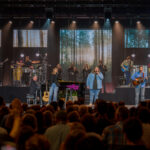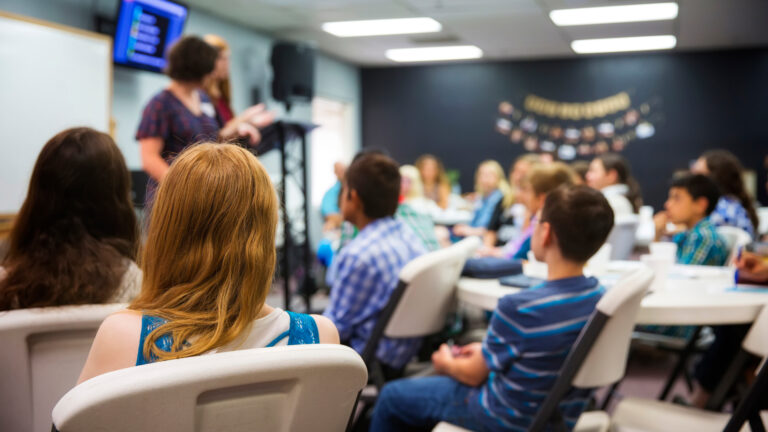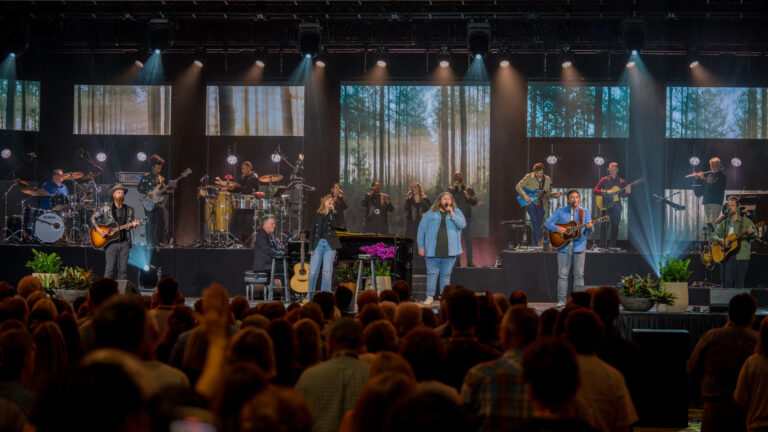Multiple subscribers to Reconstructing Faith told me they listened more than once to the second season’s first episode—“Sledgehammers Don’t Build Anything”—hoping to glean more insight from one of my guests, Brad Edwards. He’s a Colorado pastor who had some great things to say about institutional renewal versus counterfeit institutions. Brad will be writing more on this topic in the future, but in the meantime, the podcast PostEverything he hosts with John Houmes takes a closer look at important institutional dynamics affecting our world today.
A recent episode with Andy Crouch focuses primarily on Andy’s 2013 book about power and authority, Playing God. Toward the end, when Brad and John ask about restoring faith in institutions, Andy gives a somber but hopeful word that deserves close attention.
There are some times in history when it is actually very hard to build institutions. I’m not sure we’re in a propitious time to just take the mantle back up and do it. In those times, there is something you can do. Even when there is a genuine collapse around you—a widespread collapse—there is something you can do.
Andy points to the Christian ordering of the Old Testament’s historical books: Judges is about the collapse of Israel. “In the days when the judges ruled, everyone did what was right in their own eyes.” Judges ends horribly, with a civil war. The following books, 1–2 Samuel and 1–2 Kings, tell the story of rebuilding, although with complications of an institutional order, culminating in David’s kingship and the reestablishing of a nation.
There is a book in between that is not about institution building, not about power, not about people with lots of agency to do lots of impressive things. It’s the Book of Ruth. It is the story of a Moabite woman named Ruth who loves her mother-in-law Naomi so much that, when everyone has died after the famine, after the economic collapse (the book literally begins with “In the days when the judges ruled,” as in the really bad days), she sings this song of love: “Where you go, I’m going. Where you lodge, I’m lodging. Your people, my people. Your God, my God. So may it be to me and more so, if I don’t stick to you.” She makes this covenant of love. Then they find this man Boaz, who is a distant relative, and he and Ruth make a covenant of faithful love. . . .
[Ruth] is such a ridiculously small-scale story in light of the geopolitical context and the historical context and the other biblical books which focus on powerful men with powerful armies and all that stuff. It’s fundamentally a story of the faithfulness of friendship. (Obviously, Ruth and Naomi are related. And Boaz and Ruth fall in love and marry, but I think the best word for it all is friendship.)
Andy then draws out application for us today:
The thing we can do, and maybe the only thing we can do in some parts of history, the only thing available . . . is to be a friend and to cultivate friendship in this time, which does require sacrifice, which does require a kind of self-giving and a relinquishing of rights and a taking up of responsibility you didn’t have to take.
That’s the difference between family and friends. The thing about Ruth and Boaz is neither of them have to do what they do. Ruth does not have to leave Moab and go back to Bethlehem with Naomi. There’s nothing in her ethical world that tells her she has to do that. Boaz is not the legal kinsman redeemer. (There’s this other guy mentioned in the narrative who legally should step in and handle this family economic situation.) Both of them step in when they don’t have to, bind themselves to another person and say, “Wherever you’re going, I’m going. I am not giving up on you, and please don’t give up on me.”
Why does this matter? Because of God’s work in fulfilling his promises and our hope in God’s ultimate plan.
Because Boaz and Ruth do marry, they have a son. Three generations later, you’re at the house of David. And it’s actually the turning point in the whole story, which is why it’s where it is in our Bible. It’s not a story about institution-building. It is a story about power, in that it’s a story at first about the real power that saves the world—covenant love, sacrificial love. But it is also a story of creating something that’s going to last long beyond your life, that’s going to turn the story in a new direction. And it’s the thing we can do. I’m just convinced now is the time for friendship. . . . It’s the thing to invest in that will produce mustard-seed-like resources that the next generation is going to need to survive and to build and eventually to thrive.
Brad Edwards encourages us to think about hospitality as a thread from which a tapestry can be woven. The problem is, we’re out of thread. We may not have enough thread to build institutions because there isn’t enough trust. And trust cannot be manufactured.
So in this moment of institutional decline and distrust, we must take the long-term view, trusting that God will use simple, quiet acts of faithfulness and friendship for his ultimate purposes. The one thing we can do is plant seeds for our descendants to harvest.
If you would like my future articles sent to your email, as well as a curated list of books, podcasts, and helpful links I find online, enter your address.

















